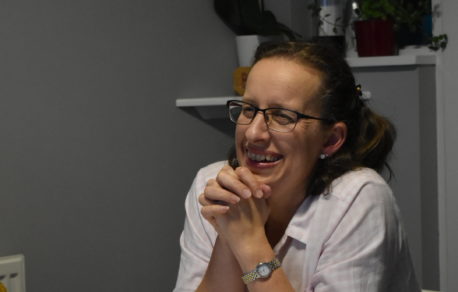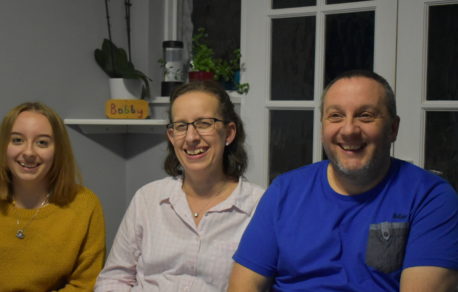
Working with ADHD: Thriving with FREE Help from Access to Work
I first discovered my neurodiversity after experiencing a change to my ability to focus, remember things, organise my thoughts, get motivated, and manage my emotions. My confidence plummeted and my confusion and overwhelm skyrocketed. I concluded I was no longer capable and had hit the beginning of the end of my usefulness. What I’d actually hit was perimenopause and the realisation that I had ADHD.
I’ve spent the last two years working out what having ADHD means for me. What I have discovered is that there is an established (and not very well known!) path to FREE government-funded support for people with ADHD in the workplace.This support is available to anyone struggling with ADHD at work, as well as other health conditions and disabilities. It’s called Access to Work (ATW). ATW is a government-funded programme to help people in England, Scotland and Wales with medical issues impacting them at work.
It can provide up to £60,000 of funding, per person, to help you do your job and stay in work; this is in addition to any reasonable adjustments made by the employer. To be eligible you need to be in work (or about to start or return to work), over 16, and impacted by a health condition that affects the way you work.
I think it’s really important that people know about this support – not just because it’s so beneficial, but because many people may not even think they’d be eligible for it.
I think it’s really important that people know about this support – not just because it’s so beneficial, but because many people may not even think they’d be eligible for it. Importantly, no formal medical diagnosis for ADHD is required to apply. I was awarded my grant while awaiting my formal ADHD diagnosis.
There are challenges, however, and the process may not be very ADHD-friendly. I found the administrative process difficult to manage alone, and if you are in paid employment you will also need to include your employer’s details on the application, adding the complication of disclosing your ADHD at work (which is not always easy to do).
However, with the support of someone from the ADHD community who had already been through the process and therefore understood the terminology, I have been able to successfully navigate the process. I now receive a government funded grant (£15,000 a year) to help support me in the workplace and it has been life changing.
I’m sharing my experience of the ATW process in the hope it helps others in my position.
As I was still learning about my ADHD, it was helpful to talk to others about what support for ADHD looked like. I found it hard to visualise what might be helpful after years of masking, making do and burning out. Knowing what you need in advance makes the application process much smoother, although you can simply say you’re not sure and ask for a workplace assessment to help establish your needs.
I now receive a government funded grant (£15,000 a year) to help support me in the workplace and it has been life changing.
ATW can provide a variety of different support options to help people at work; everybody with ADHD is unique and the support available is tailored to our unique needs.
My Specialist Equipment support needs include:
- Noise cancelling headphones
- Dictation software and training
- A sitting/standing desk
- An extra-large screen
- Organisational software
My Support Worker needs include:
- A Specialist ADHD Coach (to learn to work with my ADHD at work – I receive up to 20 1-hour coaching sessions a year)
- A Job Aide (to support with tasks I struggle with at work – I receive 6 hours a week)
Undertaking administrative tasks and organisation have been a significant challenge for me. Now, having access to Anneka, my amazing Support Worker Job Aide, for 6 hours of the week is an absolute lifeline. Due to my ADHD, I simply cannot take on multiple tasks relating to administration (like invoicing, filling in forms, scheduling appointments, and creating accurate written material) without her additional support.
I also struggle with talking on the phone in some situations due to my rejection sensitivity dysphoria (RSD), which is extreme emotional sensitivity and pain triggered by the perception that I am being rejected, teased, or criticised. It’s common with people with ADHD, which makes navigating the ATW process a real hurdle without the ongoing support I receive from Anneka. It’s a bit of a catch 22: you often need some upfront support in order to get the support!
Thanks to Access to Work, I no longer feel like this is the end of my working contribution. In fact, I am more of an asset to the workforce than I was before!
This is where organisations can really help their communities by becoming aware of the ATW process and reducing the burden of bureaucracy and admin by proactively supporting staff through the process. Just like Foothold sharing this blog!
Working with a specialist ADHD coach has allowed me (for the first time in 30 years!) to create strategies and habits that work with my unique strengths, work with my ADHD wiring, and avoid burn out. It’s helped me to build self-awareness and knowledge, to build skills and confidence, and to once again thrive in the workplace. I’ve now trained as an ADHD Coach so I can help others in a similar position get the support they need and deserve.
Thanks to the ATW support, I no longer feel like this is the end of my working contribution. In fact, I am more of an asset to the workforce than I was before! It’s another beginning for me and the future is looking hopeful and bright indeed.
You are not alone and there is a path to help. You can apply to Access to Work online here.
For more information on neurodiversity, why not visit Foothold’s Differently Wired Hub? Find expert advice and resources for engineers living with neurodiversity, and the people who support them. Join for FREE today.
If you’re an engineering student or apprentice, tailored support is available for you through our Engineering Neurodiverse Futures programme. Get support to help you access a diagnosis, improve your financial and emotional wellbeing, and unleash your unique talents. Find out more today.



